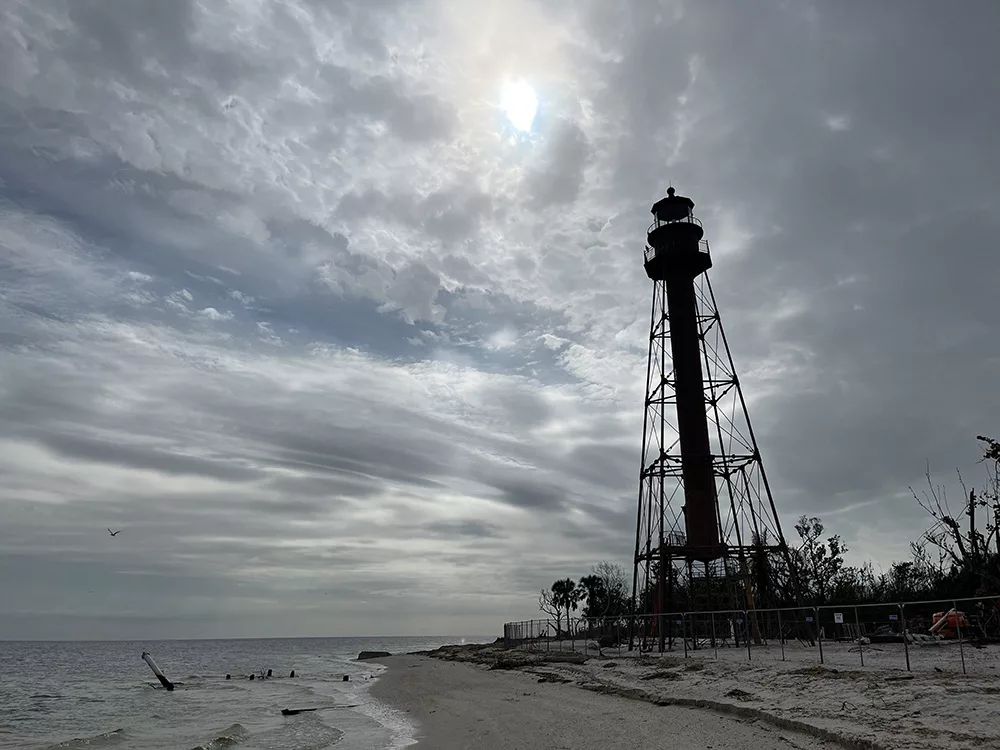Introduction
Lee County’s March bed tax revenue has experienced a significant decline of almost 50%. This drop in revenue is a result of the COVID-19 pandemic, which has caused a decrease in tourism and travel. The bed tax revenue is a crucial source of income for Lee County, and this decline will have a significant impact on the county’s economy.
Reasons behind Lee County’s March bed tax revenue drop
Lee County, Florida, is a popular tourist destination known for its beautiful beaches, warm weather, and numerous attractions. However, the county’s tourism industry has taken a hit due to the COVID-19 pandemic, resulting in a significant drop in bed tax revenue for the month of March.
According to the Lee County Tax Collector’s Office, the county’s bed tax revenue for March 2020 was $2.3 million, a 48.8% decrease from the same month in 2019. This decline is not surprising given the current state of the tourism industry, but what are the reasons behind it?
One of the main factors contributing to the drop in bed tax revenue is the cancellation of events and conferences. Many large-scale events that were scheduled to take place in Lee County in March, such as the Sanibel-Captiva Lions Club Arts and Crafts Fair and the Southwest Florida Reading Festival, were cancelled due to concerns over the spread of COVID-19. These events typically draw large crowds of tourists who stay in local hotels and vacation rentals, generating significant bed tax revenue for the county.
Another factor is the closure of businesses and attractions. In an effort to slow the spread of COVID-19, many businesses and attractions in Lee County were forced to close their doors in March. This includes popular tourist destinations such as the Edison and Ford Winter Estates and the J.N. “Ding” Darling National Wildlife Refuge. With fewer attractions open, there were fewer reasons for tourists to visit the area and book accommodations.
The travel restrictions and stay-at-home orders implemented by many states and countries also played a role in the decline of bed tax revenue. Many potential visitors to Lee County were unable to travel due to these restrictions, resulting in a decrease in demand for accommodations.
The decline in bed tax revenue is not only a reflection of the current state of the tourism industry but also has significant implications for the county’s budget. Bed tax revenue is a major source of funding for Lee County, with a portion of the revenue used to support tourism marketing and promotion efforts. The decrease in revenue will likely result in a reduction in funding for these initiatives, which could have long-term effects on the county’s tourism industry.
Despite the challenges facing the tourism industry, there are some signs of hope for Lee County. As restrictions begin to ease and businesses and attractions reopen, there is potential for an increase in tourism and bed tax revenue. Additionally, the county has implemented measures to support local businesses and encourage tourism, such as the “Safe + Clean” program, which provides guidelines and resources for businesses to ensure the safety of their customers and employees.
In conclusion, the drop in bed tax revenue for Lee County in March is a reflection of the challenges facing the tourism industry due to the COVID-19 pandemic. The cancellation of events and conferences, closure of businesses and attractions, and travel restrictions all contributed to the decline. However, with the implementation of measures to support local businesses and encourage tourism, there is potential for a rebound in the industry and an increase in bed tax revenue in the future.
Impact of COVID-19 on Lee County’s tourism industry
Lee County, Florida, is a popular tourist destination known for its beautiful beaches, warm weather, and vibrant culture. However, the COVID-19 pandemic has had a significant impact on the county’s tourism industry, with the March bed tax revenue plunging almost 50%.
The bed tax, also known as the tourist development tax, is a 5% tax on short-term rentals, such as hotels and vacation rentals. The revenue generated from this tax is used to fund tourism-related projects and promote the county as a tourist destination. In March 2020, Lee County collected $2.8 million in bed tax revenue, compared to $5.5 million in March 2019.
The decline in bed tax revenue can be attributed to the COVID-19 pandemic, which has led to travel restrictions, cancellations, and a decrease in tourism. The pandemic has caused many people to cancel their travel plans, and those who do travel are opting for destinations closer to home. Additionally, many businesses in the tourism industry, such as hotels and restaurants, have had to close or reduce their operations due to the pandemic.
The impact of the decline in bed tax revenue is significant for Lee County’s tourism industry. The revenue generated from the tax is used to fund tourism-related projects, such as beach renourishment, marketing campaigns, and events. Without this revenue, the county may have to cut back on these projects, which could have a negative impact on the tourism industry in the long run.
The decline in bed tax revenue also affects the local economy. The tourism industry is a major contributor to the county’s economy, and a decrease in tourism means a decrease in revenue for businesses in the industry. This could lead to job losses and a decrease in economic activity in the county.
To mitigate the impact of the pandemic on the tourism industry, Lee County has implemented several measures. The county has launched a marketing campaign to promote the destination as a safe and clean place to visit. The campaign highlights the county’s efforts to implement safety measures, such as increased cleaning and social distancing protocols, to ensure the safety of visitors.
The county has also implemented a grant program to provide financial assistance to businesses in the tourism industry. The program provides grants of up to $5,000 to eligible businesses to help cover expenses such as rent, utilities, and payroll.
In addition, the county has worked with local businesses to develop new products and services that cater to the changing needs of visitors. For example, some hotels have started offering work-from-hotel packages to attract remote workers who are looking for a change of scenery.
Despite these efforts, the tourism industry in Lee County is still facing significant challenges due to the pandemic. The county will need to continue to adapt and innovate to ensure the industry’s long-term sustainability.
In conclusion, the COVID-19 pandemic has had a significant impact on Lee County’s tourism industry, with the March bed tax revenue plunging almost 50%. The decline in revenue has a significant impact on the industry and the local economy. However, the county has implemented several measures to mitigate the impact of the pandemic, including a marketing campaign, a grant program, and working with local businesses to develop new products and services. The county will need to continue to adapt and innovate to ensure the industry’s long-term sustainability.
Strategies to revive Lee County’s tourism sector post-pandemic
Lee County, Florida, is a popular tourist destination known for its beautiful beaches, warm weather, and vibrant culture. However, the COVID-19 pandemic has had a significant impact on the county’s tourism sector, with the March bed tax revenue plunging almost 50%. This decline in revenue has highlighted the need for strategies to revive Lee County’s tourism sector post-pandemic.
One of the most effective strategies for reviving Lee County’s tourism sector is to focus on marketing efforts. With the pandemic still ongoing, many people are hesitant to travel, and it is essential to reassure potential visitors that Lee County is a safe and welcoming destination. Marketing campaigns that highlight the county’s safety measures, such as increased cleaning protocols and social distancing guidelines, can help to alleviate concerns and encourage visitors to return.
Another important strategy is to diversify the county’s tourism offerings. While Lee County is primarily known for its beaches, there are many other attractions that can be promoted to attract a wider range of visitors. For example, the county has a rich history and culture that can be showcased through museums, art galleries, and cultural events. Additionally, Lee County has a thriving eco-tourism industry, with opportunities for hiking, kayaking, and wildlife watching. By promoting these alternative attractions, Lee County can attract visitors who may not be interested in traditional beach vacations.
Collaboration between local businesses and tourism organizations is also crucial for reviving Lee County’s tourism sector. By working together, businesses can create packages and promotions that offer visitors a unique and memorable experience. For example, hotels and restaurants can partner to offer discounted rates on meals and accommodations, while attractions can offer bundled tickets or special events. These collaborations not only benefit visitors but also help to support local businesses and the overall economy.
Investing in infrastructure and amenities is another important strategy for reviving Lee County’s tourism sector. Upgrading public spaces, such as parks and beaches, can make them more attractive to visitors and improve the overall visitor experience. Additionally, investing in transportation infrastructure, such as bike paths and public transportation, can make it easier for visitors to explore the county and access its attractions.
Finally, it is essential to prioritize sustainability and responsible tourism practices in Lee County’s tourism sector. By promoting eco-friendly practices and supporting local conservation efforts, the county can attract visitors who are interested in sustainable tourism. Additionally, responsible tourism practices, such as respecting local cultures and minimizing environmental impact, can help to ensure that Lee County’s tourism sector is sustainable and benefits both visitors and the local community.
In conclusion, the COVID-19 pandemic has had a significant impact on Lee County’s tourism sector, with the March bed tax revenue plunging almost 50%. However, by implementing strategies such as marketing efforts, diversifying tourism offerings, collaborating between local businesses and tourism organizations, investing in infrastructure and amenities, and prioritizing sustainability and responsible tourism practices, Lee County can revive its tourism sector post-pandemic. By doing so, the county can continue to attract visitors and support its local economy for years to come.
Conclusion
Lee County’s March bed tax revenue has plunged almost 50%, indicating a significant decline in tourism and hospitality industry due to the COVID-19 pandemic. This decline is a cause for concern for the local economy and highlights the need for measures to support the industry during these challenging times.



